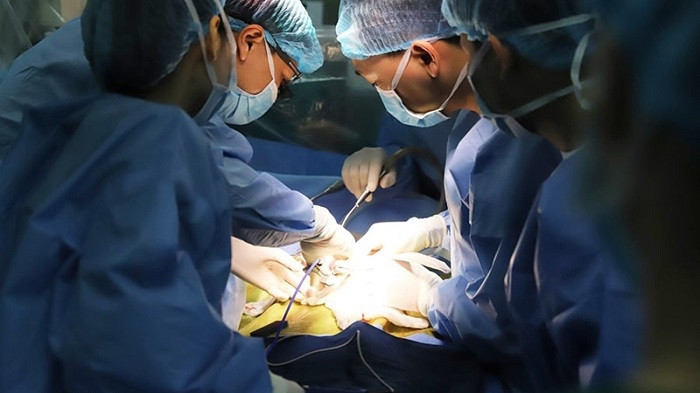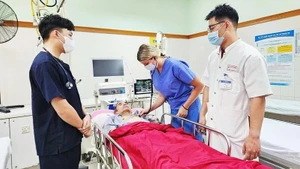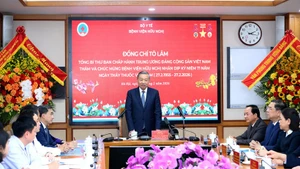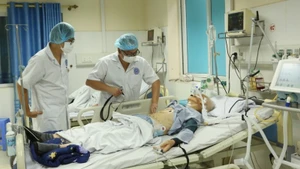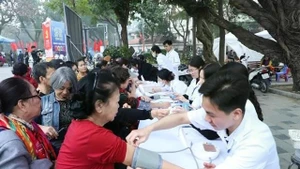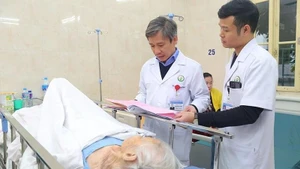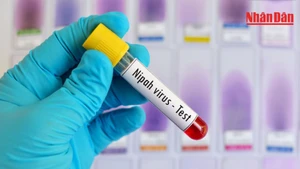The Hanoian girl was diagnosed with malignant hepatoblastoma when she was 11 months old. Despite having undergone six courses of chemotherapy and embolisation, the tumour still grew rapidly, could not be resected, and had a high risk of metastasis to other organs.
On May 24, Assoc. Prof, Dr. Tran Minh Dien, Director of the National Children's Hospital, mobilised the hospital's doctors to coordinate with their colleagues from 108 Military Hospital in a consultation, in which Dien decided to carry out a liver transplant to save the patient's life. The liver donor was the girl’s mother, aged 41.
Assoc. Prof., Dr. Pham Duy Hien, Deputy Director of the National Children's Hospital, said that the biggest obstacle was that it was the first transplant carried out on a child with a background of malignancy and high risk of complications.
It was extremely important for doctors to screen for invasive lesions to other organs before proceeding to the liver transplant. Preoperative metastasis screening tests were conducted carefully to provide optimal surgical options.
According to Colonel, Dr. Le Van Thanh, Head of the Department of Hepatobiliary and Pancreatic Surgery at 108 Military Hospital, the paediatric patient had a large tumour, capable of invading into vena cava, making the surgery extreme difficult, and the surgery team proposed the option of replacing the inferior vena cava for the patient.
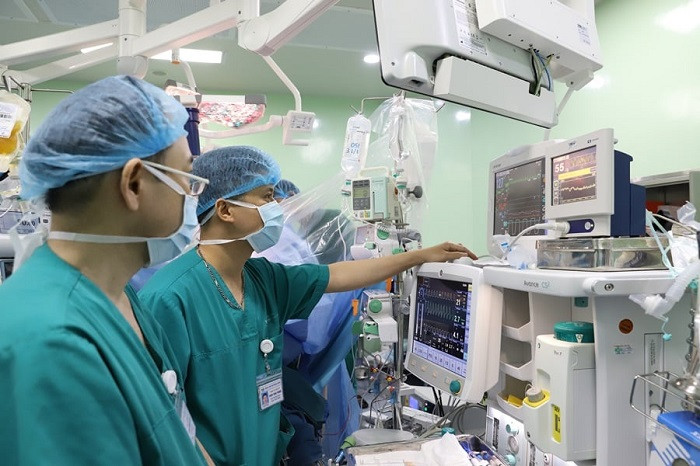
Doctors closely monitor the liver transplant. (Photo provided by the hospital)
However, thanks to the precise dissection and good handling of the blood vessels during the operation, doctors did not have to use the alternative of the inferior vena cava segment. The surgery was successfully performed thanks to the close coordination between the two hospitals, taking advantage of their experienced staff in the liver transplantation.
In order to minimise the adverse immune reactions due to ABO blood group incompatibility between the donor and the recipient, hepatologists had to use pre-transplant medical therapies so that the patient could be able to accept the graft from her mother. Prophylaxis options for the post-transplant rejection reactions, which are common in liver transplants due to blood group incompatibility, were also available.
On May 29, the liver transplant was successfully conducted. The mother was discharged one week after the surgery. Two weeks later, the family welcomed back their healthy baby into their loving arms.
This was the first liver transplant for a child with liver cancer to be conducted in Vietnam, opening a new hope for children who unfortunately have the fatal disease.
On January 21, 108 Military Hospital signed a cooperation agreement on training and transferring liver transplant techniques to the National Children's Hospital. After a period of cooperation, training and transfer, the two hospitals successfully carried out the historic transplant.
